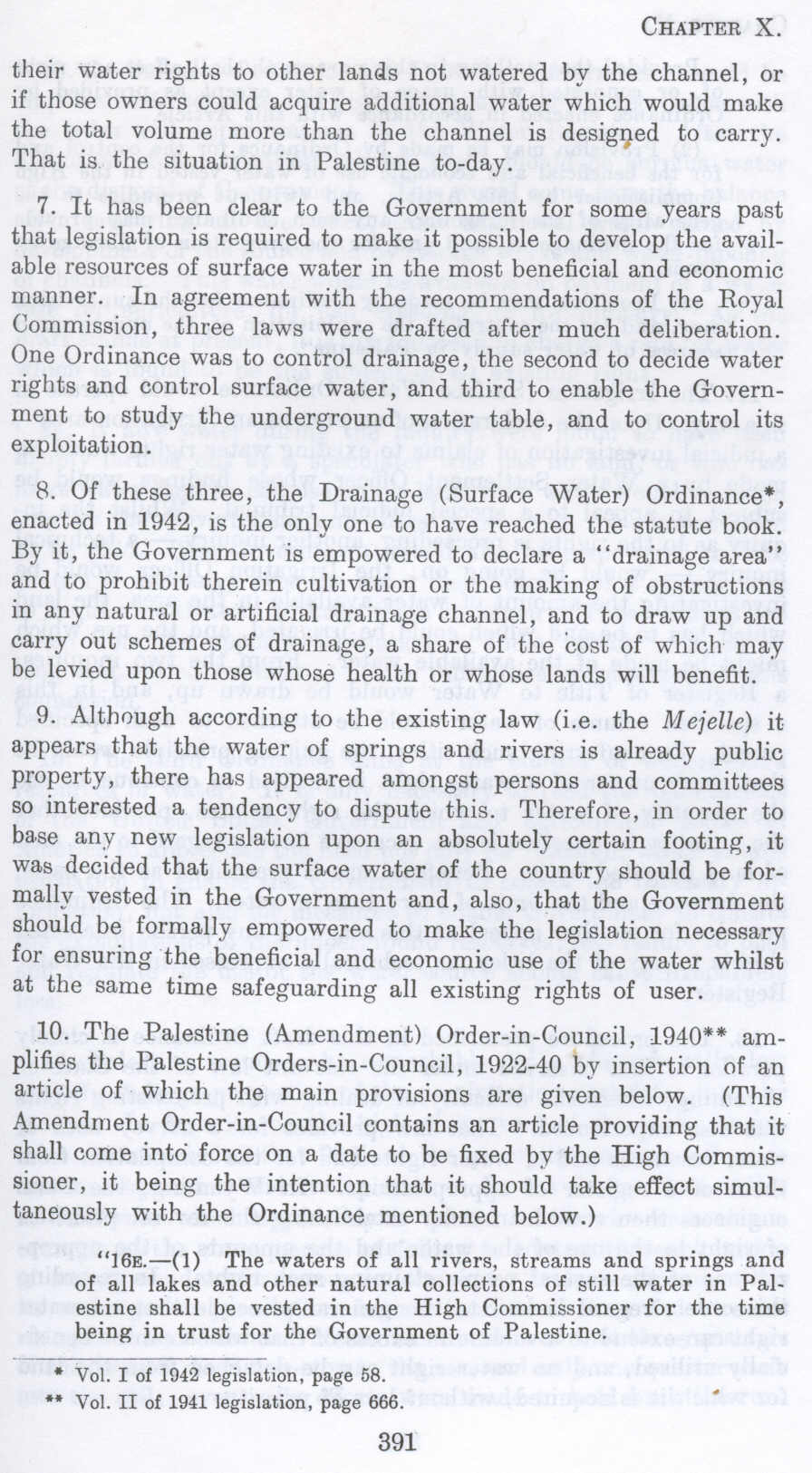| Prev | Next |  |
| Prev | Next |
| PalestineRemembered | About Us | Oral History | العربية | |
| Pictures | Zionist FAQs | Haavara | Maps | |
| Search |
| Camps |
| Districts |
| Acre |
| Baysan |
| Beersheba |
| Bethlehem |
| Gaza |
| Haifa |
| Hebron |
| Jaffa |
| Jericho |
| Jerusalem |
| Jinin |
| Nablus |
| Nazareth |
| Ramallah |
| al-Ramla |
| Safad |
| Tiberias |
| Tulkarm |
| Donate |
| Contact |
| Profile |
| Videos |
British Mandate: A Survey of Palestine: Volume I - Page 391 |
Disclaimer
The above documents, article, interviews, movies, podcasts, or stories reflects solely the research and opinions of its authors. PalestineRemembered.com makes its best effort to validate its contents.


Post Your Comment
*It should be NOTED that your email address won't be shared, and all communications between members will be routed via the website's mail server.
their water rights to other lands not watered by the channel, or if those owners could acquire additional water which would make the total volume more than the channel is designed to carry. That is the situation in Palestine to-day.
7. It has been clear to the Government for some years past that legislation is required to make it possible to develop the available resources of surface water in the most beneficial and economic manner. In agreement with the recommendations of the Royal Commission, three laws were drafted after much deliberation. One Ordinance was to control drainage, the second to decide water rights and control surface water, and third to enable the Government to study the underground water table, and to control its exploitation.
8. Of these three, the Drainage (Surface Water) Ordinance", enacted in 1942, is the only one to have reached the statute book. By it, the Government is empowered to declare a "drainage area" and to prohibit therein cultivation or the making of obstructions in any natural or artificial drainage channel, and to draw up and carry out schemes of drainage, a share of the cost of which may be levied upon those whose health or whose lands will benefit.
9. Although according to the existing law (i.e. the Mejelle) it appears that the water of springs and rivers is already public property, there has appeared amongst persons and committees so interested a tendency to dispute this. Therefore, in order to has e any new legislation upon an absolutely certain footing, it was decided that the surface water of the country should be formally vested in the Government and, also, that the Government should be formally empowered to make the legislation necessary for ensuring the beneficial and economic use of the water whilst at the same time safeguarding all existing rights of user.
10. The Palestine (Amendment) Order-in-Council, 1940** amplifies the Palestine Orders-in-Council, 1922-40 by insertion of an article of which the main provisions are given below. (This Amendment Order-in-Council contains an article providing that it shall come into force on a date to be fixed by the High Commissioner, it being the intention that it should take effect simultaneously with the Ordinance mentioned below.)
“16E.-(l) The waters of all rivers, streams and springs and of all lakes and other natural collections of still water in Palestine shall be vested in the High Commissioner for the time being in trust for the Government of Palestine.
___________________________________
* Vol. I of 1942 legislation, page 58 .
** Vol. II of 1941 legislation, page 666.
Page 391